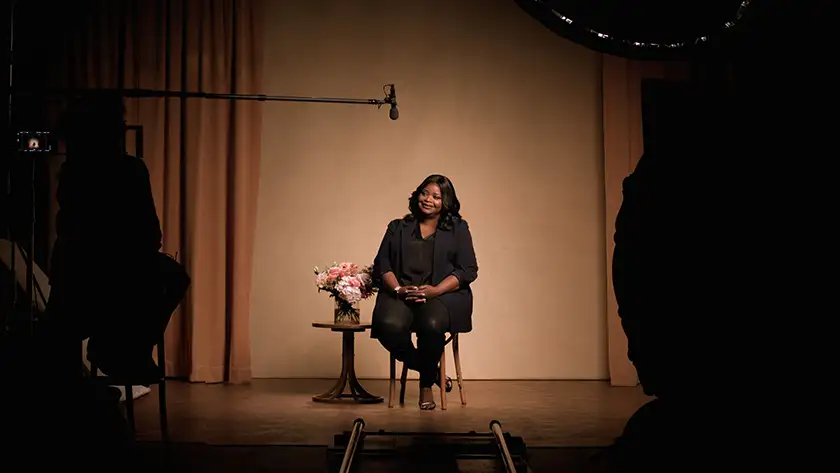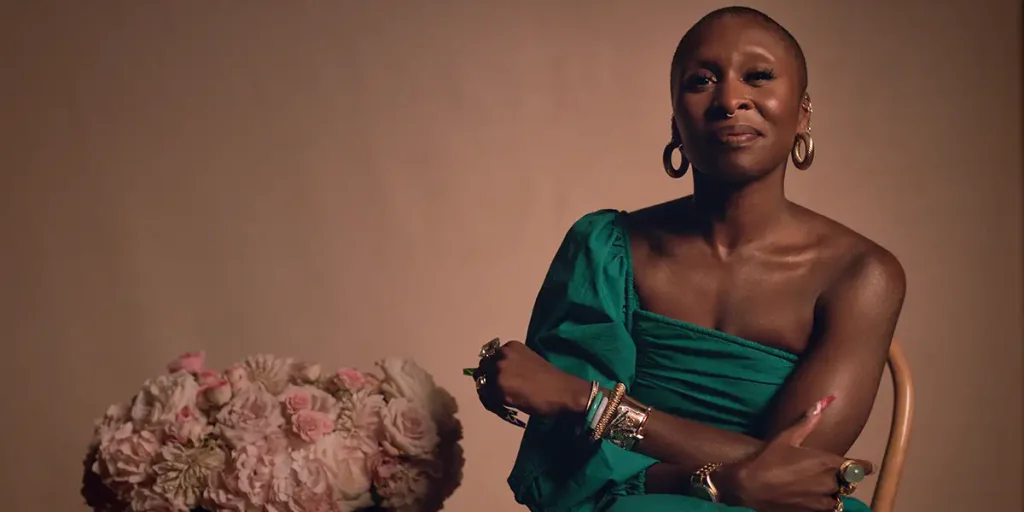Number One on the Call Sheet is a potent two-part documentary about the struggles of the African-American stars of Hollywood.
Directors: Reginald Hudlin & Shola Lynch
Genre: Documentary
Number of Episodes: 2
Run Time: 190′
Release Date: March 28, 2025
Where to Watch: Stream it Globally on Apple TV
Produced by Jamie Foxx and Kevin Hart, and directed by Reginald Hudlin and Shola Lynch, Number One on the Call Sheet is a two-part documentary for Apple TV Plus that highlights the history of African-American actors in Hollywood, as well as all the hard work they’ve had to do in order to become stars. Or most appropriately, in order to become the Number One on the Call Sheet, or the most important actor or actress in a production.
Something that, until depressingly recently, was almost exclusively reserved for white, cis-gender and traditionally attractive artists.
Part One, then, focuses on contemporary Hollywood’s biggest African-American male stars, ranging from living legends like Morgan Freeman and Denzel Washington to comedians like Kevin Hart and dramatic stars like Idris Elba and Daniel Kaluuya. The episode consists mainly of these artists talking about their experiences in the moviemaking business, emphasising the importance of their status as role models, but also stressing the way their idols influenced their work and how they perceive themselves as Hollywood stars.
It’s rather interesting, for example, to watch Morgan Freeman talking about the way things were when he was younger, or Denzel and other actors telling us about older figures such as Sidney Poitier. Producer Jamie Foxx also talks about his family and how he values his current status and wealth, making sure that he is always conscious of the fact that his grandma had to pick cotton in order for him to, years later, have a completely different kind of life. He mentions, for example, that his property consists of forty acres of land because decades earlier African-American freed families were promised “forty acres and a mule”, something that nowadays symbolises the broken promises that were made to African-Americans as economic justice.
It’s also refreshing to see actors like The Rock or Will Smith talking about their private lives and the way they’ve been impacted by fame. In a rare candid moment, Dwayne Johnson discusses the way his work ethic impacted his personal life, a situation that ended in a divorce from his first wife. And Smith talks about his daughter and the way she, as a child, handled fame in contrast to her dad. There’s clearly stuff they won’t mention –Smith’s infamous slap incident at the Oscars isn’t even mentioned, and with good reason; it really wouldn’t be relevant– but overall, most of these actors’ declarations feel honest enough.
Most interestingly, this first episode is structured in a way that tells the viewer the story of Hollywood African-American stars in chronological order. It begins focusing on actors like the aforementioned Sydney Poitier, or Cleavon Little who, after being “number one on the call sheet” of classic Mel Brooks comedy Blazing Saddles, wasn’t offered a single starring role in a Hollywood film for four years. After that, it focuses on the eighties, including interviews with Eddie Murphy, who talks about the way he approached fame after working on Saturday Night Live, and of course, other actors talking about how he was an inspiration for them as the first true African-American Hollywood star to be famous pretty much everywhere.
After that, the episode focuses on the nineties, which of course allows it to include statements by Will Smith and Martin Lawrence (talking about Michael Bay’s Bad Boys), but also by the protagonists of indie productions such as Friday, Do The Right Thing or Boyz n the Hood. The film stresses the importance of the first generation of African-American filmmakers who went to film school, such as Spike Lee or the late John Singleton, who managed to open up the ceiling and allow artists to be popular not only with “Black audiences” (as executives and producers would put it) but with people worldwide.
This first episode ends rather emotionally by focusing on Ryan Coogler’s Black Panther, and the role the late Chadwick Boseman had in turning that film into a worldwide hit, proving to producers that Black-led films could indeed “sell internationally”. Actors such as Don Cheadle or Marlon Wayans are the first to admit that things aren’t perfect nowadays, but that they have certainly gotten much better, with Morgan Freeman even saying that “there’s no better time to be an African-American actor”. The episode, then, manages to paint a pretty complete picture of the way all these artists managed to become the first names on their respective call sheets, even stressing the importance of romantic comedies with all-Black casts, led by actors such as Morris Chestnut or Taye Diggs (of The Best Man).
On the other hand, Part Two focuses on African-American women stars, including the likes of Halle Berry, Tajari P. Henson, Meagan Goode, Nia Long, Tessa Thompson, and many more. And interestingly enough, while the first episode was directed by Reginald Hudlin, this one was directed by Shola Lynch, meaning it’s got a different visual style, including graphics for movie reviews and the such, as well as more interventions by the director herself. This makes it clear that the two episodes of Number One on the Call Sheet should be considered more like individual movies, even though they obviously have a similar subject matter in common.
Moreover, even though both the male and the female stars had to deal with similar problems and obstacles, it becomes clear quite quickly that the latter had bigger issues to contend with. If being an African-American actor in Hollywood is hard enough already, being a woman –or even a queer woman– on top of that is even more difficult. This results in many of these actresses talking about how they had to conform to playing “the best friend” or the “sassy Black woman”, and other tired stereotypes. Someone like the great Octavia Spencer, for example, played dozens of nurses and maids at the beginning of her career, because she wasn’t being given many other roles.

The episode also deals with beauty standards and the way many big Hollywood productions, for example, don’t employ make-up or hair artists who know how to work with darker skin tones or African-American hair. It’s even said that many of these actresses feel much more comfortable and less stressed when they arrive on set and find an African-American make-up artist because they know they will be safe with her. This, alongside the way Hollywood productions have treated actresses who don’t conform to their beauty standards, makes it clear that the road to success for these actresses was particularly challenging, and it continues to be so.
This also relates, of course, to casting, and the way these actresses are perceived. Halle Berry talks about her beauty and the way it’s worked for her –helping her get certain parts– and against her –with some people thinking she might not be intelligent or even talented. And Gaourey Sibide (of Precious) talks about how she had to work on her self-worth, realising that she’s got to love herself for others to love her. Since she doesn’t necessarily look the way she’s “supposed” to look, she has problems getting parts, but at the same time, she’s grateful to movies like Precious and the way they tackle certain subjects and realities many people aren’t privy to.
Much more could be written about this second (and final) episode of Number One on the Call Sheet, but overall, it’s definitely the stronger of the two, even considering the first one is pretty good. Maybe it’s the fact that the actresses have had professional struggles related to both their race and their sex, but I found the second episode to be more emotional, more energetic and even more true. The ending, which highlights Halle Berry’s Oscar win, and the way it has and hasn’t affected the American film industry is particularly powerful. The fact that no other Black artist has won the Best Actress Oscar after Halle Berry is frustrating, not only for Berry herself but also for the other actresses appearing in the documentary.
Having said that, Number One on the Call Sheet ends both in a depressingly realistic and in a hopeful way. The actresses mention that the system is always against them and that maybe they should stop trying to conform to it. But they also admit that things have gotten much better and that, despite the many losses at the Oscars of several amazing Black actresses in recent years, they have to keep going. They have to acknowledge the work of those who came before and keep going at it. As Halle Berry says, she’s just beginning the second stage of her career, and I’m sure she’s got much more to give.
Number One of the Call Sheet works because, through its two episodes, it makes us realise everything these awesome artists have had to go through. The discrimination, the ridiculous theories regarding box office and success, the unfair wages, the clichéd roles. But it also shows how things have gotten much better and, most importantly, how there’s still a lot of work to be done. It’s a documentary for those who came before and those who are now part of the industry, but also those who will become stars and great artists in the (hopefully not so distant) future.
Number One on the Call Sheet (Apple TV): Plot & Recap
Synopsis:
A two-part documentary that interviews several African-American actors and actresses about their road to success and the obstacles they’ve had to struggle against.
Pros:
- An amazing group of actors and actresses.
- It tackles relevant and interesting subjects.
- A couple of unexpected candid declarations.
- The second episode in particular is quite emotional.
Cons:
- Not very visually inventive.
- Second episode is a bit stronger than the first.
Number One on the Call Sheet is now available to watch globally on Apple TV.
Loud and Clear Reviews has an affiliate partnership with Apple, so we receive a share of the revenue from your purchase or streaming of the films when you click on some of the links on this page. This won’t affect how much you pay for them and helps us keep the site free for everyone.

